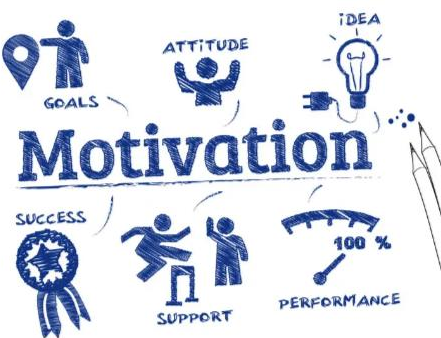Techniques for Effectively Managing and Motivating Project Team
Author: Latha Thamma Reddi - PMP SCM, Black Belt

Introduction:
Managing and motivating project teams is a critical aspect of project success. Effective leadership and team management are essential to keep members engaged, productive, and focused on achieving project goals. In this article, we will explore various techniques that project managers can employ to manage and motivate their teams effectively, fostering a collaborative and high-performing environment. We will also showcase real-world examples where these techniques have been successfully implemented, highlighting the importance of teamwork and setting clear goals.
Clear Goal Definition:
Setting clear goals is crucial for team motivation and success. A prime example is the Apollo 11 mission, where NASA had a clear goal of landing humans on the moon. The entire team, from engineers to astronauts, had a shared understanding of the objective, which fueled their motivation and dedication to accomplish the mission.
Effective Communication:
Open and transparent communication is vital for team motivation. A noteworthy example is Google's "Project Aristotle," which studied hundreds of teams to identify the factors that make teams successful. The research revealed that effective communication, where everyone has a voice and feels heard, was a key component of highly productive and motivated teams.
Empowerment and Autonomy:
Empowering team members and granting them autonomy can significantly enhance motivation. Atlassian, a leading software company, implements "ShipIt Days" where employees have 24 hours to work on any project they choose. This initiative fosters creativity, ownership, and motivation, as individuals are given the freedom to explore their ideas and make an impact.
Collaborative Team Environment:
Promoting collaboration within teams is essential for motivation and productivity. W.L. Gore, a manufacturing company, encourages a team-based culture where employees work in self-managed teams and have the freedom to pursue innovative ideas. This collaborative environment fosters teamwork, creativity, and motivation among its employees.
Recognize and Celebrate Achievements:
Recognizing and celebrating achievements is a powerful motivator. The "Foundry Fridays" program at Facebook exemplifies this technique. Every week, teams present their accomplishments, and outstanding achievements are celebrated publicly. This recognition boosts team morale, motivation, and a sense of accomplishment.
Supportive Leadership:
Supportive leadership is crucial for team motivation. Pixar Animation Studios is known for its supportive and visionary leadership style. The company's president, Ed Catmull, emphasizes the importance of providing a safe environment where team members can take risks, learn from failures, and pursue their passions. This supportive leadership style fosters a culture of motivation, innovation, and trust.
Regular Feedback and Performance Evaluation:
Regular feedback and performance evaluations play a vital role in team motivation. Netflix, a renowned streaming platform, has implemented a culture of continuous feedback. They conduct "360-degree" reviews, where employees receive feedback not only from their superiors but also from their peers and subordinates. This feedback culture promotes growth, development, and motivation.
Training and Development Opportunities:
Investing in the training and development of team members is essential for motivation and growth. Google's "20% Time" policy allows employees to dedicate 20% of their workweek to personal projects of interest. This initiative provides learning opportunities, encourages innovation, and keeps employees motivated and engaged.
Balance Workload and Manage Expectations:
Maintaining a balanced workload and managing expectations is crucial for team motivation. Buffer, a social media management company, implements a transparent and flexible work culture. They encourage employees to maintain a healthy work-life balance by setting clear boundaries and providing remote work options. This approach prevents burnout, enhances motivation, and promotes overall well-being.
Foster a Positive Work-Life Balance:
Prioritizing work-life balance contributes to team motivation and productivity. Basecamp, a project management software company.
Conclusion:
Using these methods to effectively manage and support teamwork can bring many benefits to the event. Improved team effectiveness, improved collaboration and communication, higher levels of employee engagement, enhanced accountability, conflict resolution, efficient use of resources and greater stakeholder satisfaction are some of the benefits of using this technology. By investing in effective team management, project managers can increase success and achieve their operational goals.
Author Bio:
| Latha is a highly accomplished CIO Award winning Global Information Technology leader with two decades of experience in ERP and Cloud Technologies. She has worked as Sr Product and Portfolio Manager within Fortune 100 Companies across diverse industries such as Finance, Banking, Treasury, Insurance and Hospitality. Her outstanding contributions have been recognized and celebrated with the esteemed CIO award, highlighting her significant impact in the field. |
 |


